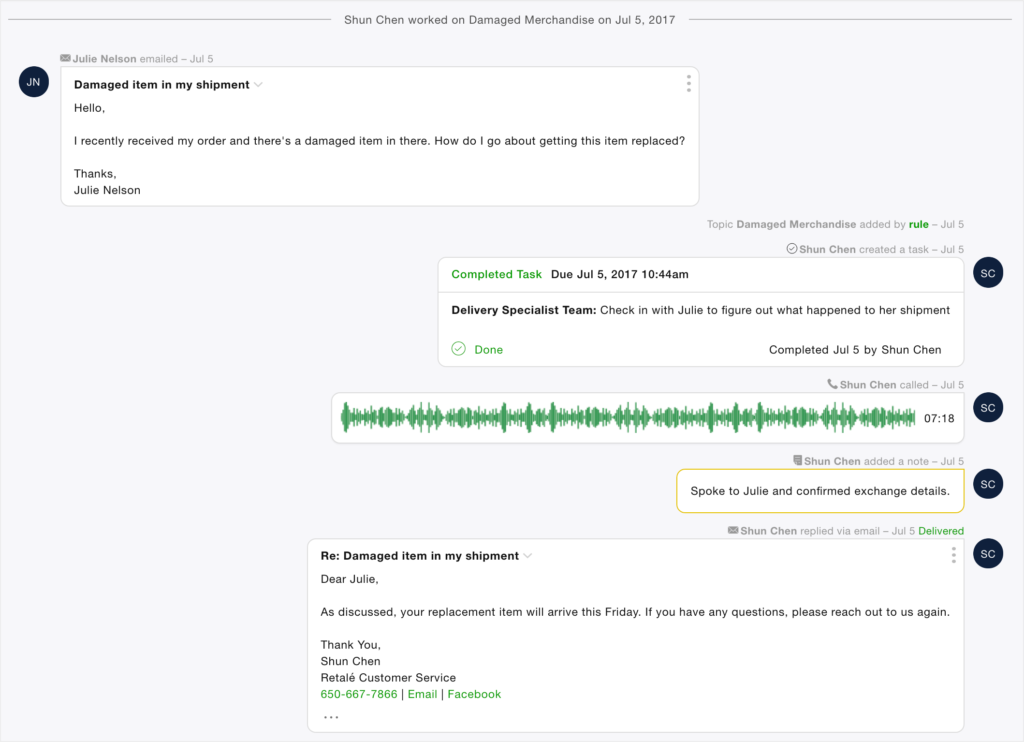In Gladly, you can see a Customer’s entire Conversation history no matter what Channel they use to contact you. All of your interactions with the Customer exist in a single place. Having every interaction and Conversation with a Customer in one place provides more context, less need for your Customer to repeat themselves, and provides quicker responses.
Conversations provide a more natural way of handling communication as Conversations always provide a holistic view of who the Customer is and the Channels they use to communicate, along with quickly seeing past Conversations.

Here are other things to take note of regarding Conversations:
- A Conversation can span across multiple Channels.
- A Conversation can be found in the Conversation Timeline. Each Conversation is separated by Topic.
- A Conversation stays in a single Inbox and Agent at a time.
- A Conversation can have different Contacts on different channels.
- A Conversation may go through a series of statuses:
- New – Unassigned Contacts and waiting to be routed to an Agent
- Open – Assigned to an Agent
- Waiting – All Contacts have ended, but the Conversation has not been closed. For example, Conversations marked as No Reply Needed.
- Closed –Solved and require no further action. It can be reopened if a Customer responds to a closed conversation within a specified time window.
- Note – Agents see the list of open Customer Conversations in their My Customer list. Team Managers and Administrators can view Conversations by status.
Conversations in Gladly is a concept that is much different from the traditional concept of ‘tickets’ or ‘cases.’ Some of the other key differentiators to take note of are:
- Customers are never assigned a ‘case/ticket number” in Gladly.
- A new Conversation is never opened every time a Customer contacts you (unlike cases/tickets).
- Conversations can cross multiple Channels (e.g., SMS, chat, voice, etc.) where cases/tickets are typically restricted to the type of Inbound Channel used. This omnichannel capability in a Conversation environment allows you to quickly meet your Customers when and where they want to be met.
- A Customer can only have one Conversation open at any given time, preventing request duplication.
What a Conversation is made up of #
Conversations are comprised of Contacts, Tasks, and the entire history of interactions with the Customer within the Conversation Timeline.







